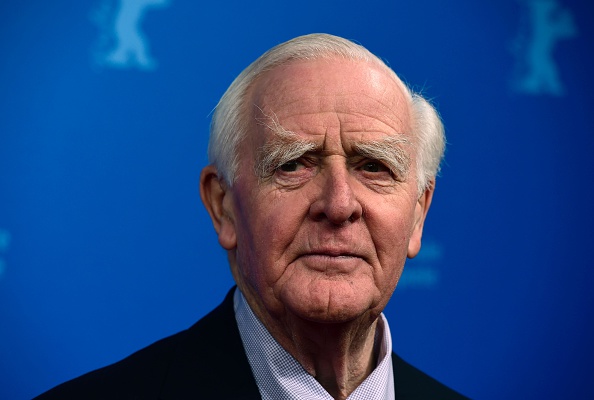What was John le Carré's net worth?
John le Carré was a British author who had a net worth of $100 million at the time of his death. Born David John Moore Cornwell, he was best known for writing espionage novels based off of his real life experiences working for the Security Service and the Secret Intelligence Service during the 1950s and 1960s.
Several of his books were turned into feature-length films, notably "The Constant Gardener" and "Tinker Tailor Soldier Spy". John is considered by many to be one of the most significant authors of the 20th Century.
David wrote his first book "Call for the Dead" in 1961. He was forbidden by the government from writing under his real name so he settled on "John le Carré". Decades later he would claim to have forgotten how he landed on that pen name.
Unlike the suave, womanizing James Bond, le Carre's protagonists were often unhappy, overweight, poorly-dressed, lonely men who worked as bureaucratic cogs.
It was his third novel, 1963's "The Spy Who Came in from the Cold" that put John le Carré on the map, becoming an international best-seller.
Le Carré also authored the novels "Call for the Dead" in 1961, "A Murder of Quality" in 1962, "The Looking Glass War" in 1965, "A Small Town in Germany" in 1968, "The Naïve and Sentimental Lover" in 1971, "Tinker Tailor Soldier Spy" in 1974, "The Honourable Schoolboy" in 1977, "Smiley's People" in 1979, "The Little Drummer Girl" in 1983, "A Perfect Spy" in 1986, "The Russia House" in 1989, "The Secret Pilgrim" in 1990, "The Night Manager" in 1993, "Our Game" in 1995, "The Tailor of Panama" in 1996, "Single & Single" in 1999, "The Constant Gardener" in 2001, "Absolute Friends" in 2003, "The Mission Song" in 2006, "A Most Wanted Man" in 2008, "Our King of Traitor" in 2010, "A Delicate Truth in 2013", and "A Legacy of Spies" in 2017.
John le Carré died on December 12, 2020 at the age of 89.

Getty Images
Early Life and Experience in Espionage
John le Carré was born in Poole, Dorset, England. His early life was marked by his relationship with his father, a charismatic but deceitful man, often involved in fraudulent businesses. This experience significantly influenced le Carré's later writing, particularly his portrayal of betrayal and moral compromise.
Before becoming a full-time writer, le Carré worked in intelligence, first for the British Army's Intelligence Corps and later for the Foreign Service. This firsthand experience of the murky world of espionage deeply informed his novels, lending them authenticity and depth.
'The Spy Who Came in from the Cold'
Le Carré published his first novel, "Call for the Dead", in 1961, while still working for the Foreign Service. However, it was his third novel, "The Spy Who Came in from the Cold", that catapulted him to international fame. The book's stark depiction of Cold War espionage, far from the glamour often associated with the genre, resonated with readers and critics alike.
Depicting the Cold War and Beyond
Le Carré's subsequent novels continued to explore the theme of espionage, but with a nuanced portrayal of the Cold War. Works like "Tinker Tailor Soldier Spy", "The Honourable Schoolboy", and "Smiley's People", often referred to as the Karla Trilogy, are considered classics of the genre. His protagonist, George Smiley, became an iconic character, embodying the quiet, cerebral, and morally conflicted spy.
As the Cold War ended, le Carré shifted his focus to other arenas of international intrigue, including corporate corruption, arms dealing, and the War on Terror. His ability to adapt to changing global landscapes while maintaining his signature style demonstrated his skill and versatility as a writer.
Critical Acclaim and Adaptations
Le Carré's novels were not only popular but also critically acclaimed for their literary merit. His writing, characterized by its elegance and complexity, elevated spy fiction to the level of serious literature. Several of his works were adapted into successful films and TV series, further expanding his influence.
Later Life and Legacy
Even in his later years, le Carré remained an active and outspoken figure. His final novels, including "A Legacy of Spies" and "Agent Running in the Field", continued to engage with contemporary political issues. He passed away in 2020, but his legacy lives on in his extensive body of work.
/2017/09/GettyImages-511147770.jpg)
/2019/01/Ian-Fleming.jpg)
/2010/06/GettyImages-168129654.jpg)
/2011/05/GettyImages-108720070.jpg)
/2015/03/William-Peter-Blatty.jpg)
/2010/08/Gary-Oldman-1.jpg)
/2019/01/James-Altucher.jpg)
/2013/12/dan.jpg)
/2011/12/John-Mara-1.jpg)
/2010/12/kate-1.jpg)
/2020/10/the-miz.png)
/2011/12/Rooney-Mara1.jpg)
/2020/08/gc-1.jpg)
/2014/04/GettyImages-886617106.jpg)
/2011/01/Aaron-Rodgers.jpg)
/2022/10/peter-krause.jpg)
/2010/03/emil.jpg)
/2017/09/GettyImages-511147770.jpg)
/2010/08/Gary-Oldman-1.jpg)
/2010/06/GettyImages-168129654.jpg)
/2015/03/William-Peter-Blatty.jpg)
/2014/12/GettyImages-601090722.jpg)
/2020/05/Albert-Broccoli.jpg)
/2017/08/Paula-Hawkins-1.jpg)
/2022/09/Truman-Capote.jpg)